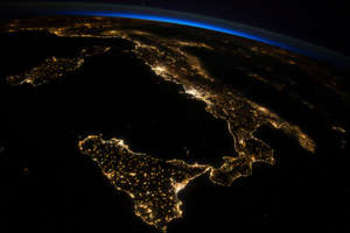Horizon 2020 - Space, draft work programme 2016-2017

The European Commission published the draft Work Programme 2016-2017 for LEIT-Space in Horizon 2020
Space research is supported in Horizon 2020 under the priority "Industrial Leadership", in line with the main objective and challenge to ensure that space will remain accessible to Europe and safe to operate in the long run.
The work programme has been structured to address these challenges by:
- prioritising the existing two EU Space flagships of European Global Navigation Satellite System (EGNSS) and Earth Observation;
- ensuring support for the third programmatic priority of the EU space policy: the protection of space infrastructure and in particular the setting up of a Space Surveillance and Tracking system (SST) at European level;
- ensuring support to EU industry to meet the objectives defined in the Commission communication on Space Industrial Policy;
- ensuring that Europe’s investments made in space infrastructure are exploited to the benefit of citizens, as well as supporting European space science; and
- enhancing Europe’s standing as attractive partner for international partnerships in space science and exploration.
The work programme foresees 5 call for proposals:
1. Call - Earth Observation
- EO-1-2016: Downstream applications
- EO-2-2016: Downstream services for public authorities
- EO-3-2016: Evolution of Copernicus services
2. Call - Competitiveness of European Space Sector: Technology and Science
- COMPET-1-2016: Technologies for European non-dependence and competitiveness
- COMPET-2-2016: Maturing satellite communication technologies
- COMPET-3-2016-a: SRC - In-Space electrical propulsion and station keeping - Incremental Technologies
- COMPET-3-2016-b: SRC - In-Space electrical propulsion and station keeping - Disruptive Technologies
- COMPET-4-2016: SRC - Space Robotics Technologies
- COMPET-5-2016: Scientific Instrumentation
3. Call - Applications in Satellite Navigation – Galileo – 2017
- GALILEO-1-2017: EGNSS Transport applications
- GALILEO-2-2017: EGNSS mass market applications
- GALILEO-3-2017: EGNSS professional applications
- GALILEO-4-2017: EGNSS awareness raising and capacity building
4. Call - Earth Observation
- EO-1-2017: Downstream applications
- EO-2-2017: EO Big Data Shift
5. Call - Competitiveness of the European Space Sector: Technology and Science
- COMPET-1-2017: Technologies for European non-dependence and competitiveness
- COMPET-2-2017: Competitiveness in Earth observation mission technologies
- COMPET-3-2017: High speed data chain
- COMPET-4-2017: Scientific data exploitation
- COMPET-5-2017: Space Weather
- COMPET-6-2017: Space portal
- COMPET-7-2017: Technology transfer and business generators
There are also other action, such as:
- Galileo Evolution, Mission and Service related R&D activities,
- EGNOS, Mission and Service related R&D activities,
- Engineering support by ESA,
- Horizon 2020 proposal evaluation and project monitoring.
The provisional budget of the work programme is 347 million of euros (166 million of euros for 2016, 181 million of euros for 2017). The adoption and the publication of the work programmes by the EU Commission are expected in mid-October 2015.
Links
Draft work programme 2016-2017
Photo credit: NASA's Marshall Space Flight Center / Foter / CC BY-NC
